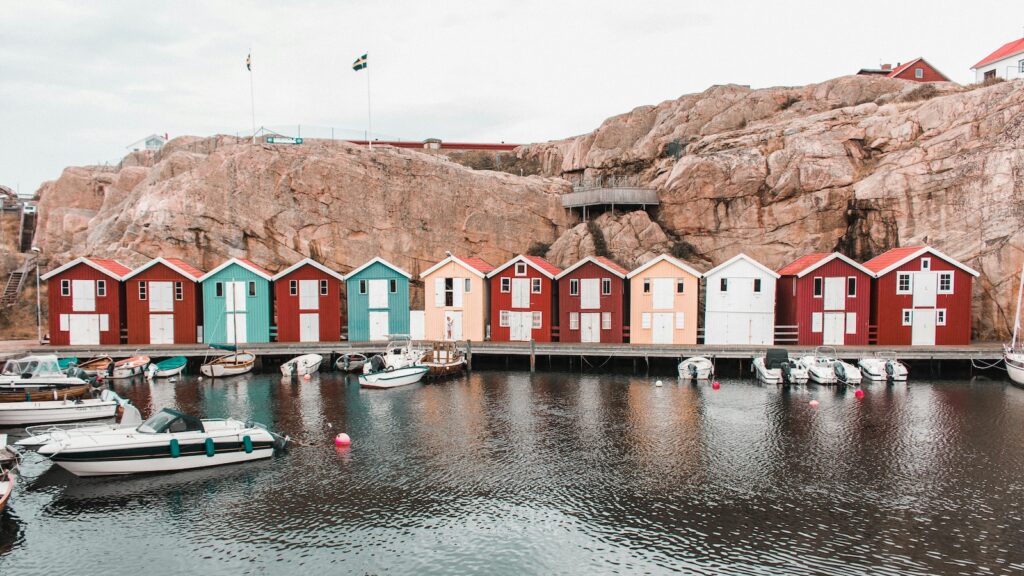Spain’s beloved cities are clamping down on short-term rentals like Airbnb, throwing a wrench into many travelers’ plans. With new caps on rental days and tougher regulations, popular destinations are aiming to curb overtourism and rising housing prices. Here’s how these changes could affect your next Spanish escape and what alternatives you might consider.
What’s Fueling the Rental Cap?
The explosion of short-term rentals in cities like Barcelona and Madrid has driven up local housing prices, creating a crisis for residents. This surge has made it difficult for locals to find affordable housing, as properties are often converted into short-term rentals for higher profits. City councils are enacting these caps to combat the negative impact on the local housing market and preserve community integrity.
Barcelona Cracks Down
Barcelona, a city swamped by tourists, is implementing strict rental regulations. Mayor Ada Colau has been vocal about the need to control tourism and protect residents’ access to affordable housing. Illegal rentals are facing hefty fines, with penalties reaching up to €60,000 for repeat offenders. Obtaining a new license for short-term rentals is nearly impossible, as the city has frozen the issuing of new tourist licenses, aiming to cap the number of tourist accommodations.
Madrid’s Approach
Madrid is following suit with new rules that require hosts to register their properties and limit rental days. This is a strategic move to address the surge in tourist accommodations that have affected the city’s housing market and residents’ quality of life. Properties in central areas are now limited to 90 rental days per year unless the owner lives on-site. These measures aim to reduce the pressure on the housing market and ensure that more properties are available for long-term residents.
What This Means for Tourists
If you’re heading to Spain, expect fewer options for short-term rentals, especially in popular neighborhoods. With these new caps, you’ll need to book well in advance to secure a spot, and you might find that rental prices have increased due to the limited supply. The average price for an Airbnb in central Barcelona has jumped to around €150-€200 per night during peak season, while Madrid averages around €120-€180 per night. This means you might end up paying more for less availability and flexibility.
Hotels Gaining Ground
As short-term rentals get squeezed, hotels are stepping back into the spotlight. With less competition from Airbnb and similar platforms, hotels may see a surge in demand. The average cost for a mid-range hotel in Barcelona is around €120-€200 per night, and in Madrid, it’s about €100-€180 per night. Luxury hotels can go upwards of €300 per night. This increased demand could drive up prices in high-demand areas, especially during peak travel seasons.
Benefits of Choosing Hotels
- Convenience: Hotels offer amenities like daily housekeeping, concierge services, and often include breakfast.
- Location: Many hotels are situated in prime areas close to major attractions and public transport.
- Reliability: Unlike short-term rentals, hotels offer a more predictable booking experience with fewer risks of cancellations.
- Compliance: Hotels comply with local regulations, so travelers don’t have to worry about staying in unlicensed properties.
Exploring Other Accommodation Options
If hotels aren’t your preference, consider alternatives like hostels, guesthouses, or boutique hotels. Hostels are a budget-friendly option, with average prices ranging from €20-€60 per night for a dormitory bed and €50-€100 for a private room. Boutique hotels and guesthouses offer a more personalized experience, with prices generally ranging between €80-€200 per night depending on the location and season.
The Local Impact
Residents are feeling the positive effects as these caps help stabilize housing availability and costs. By limiting short-term rentals, cities aim to retain their local character and ensure long-term housing for their communities. However, the cap has stirred controversy among some property owners who see it as a limitation on their economic opportunities.
Hosts in a Bind
Airbnb hosts are finding themselves in a tough spot. With new regulations, their income from short-term rentals is at risk. Compliance is non-negotiable, with severe fines for those who flout the rules. Hosts now need to register their properties and adhere to strict regulations or face penalties, which has caused many to reconsider their participation in the short-term rental market.
Legal Challenges Arise
Some property owners and rental platforms are challenging these regulations, arguing that they infringe on property rights and limit economic opportunities. Legal challenges against the new rules are already in motion, and the outcome could shape the future of short-term rentals in Spain.
Overtourism in the Spotlight
The rental cap is part of a broader strategy to tackle overtourism in Europe’s most popular destinations. It’s a balancing act between preserving the local way of life and accommodating the influx of visitors flocking to iconic spots. These measures are seen as a step towards sustainable tourism, ensuring that cities like Barcelona and Madrid do not lose their unique cultural identity to mass tourism.
Planning Your Trip
For travelers, this means being strategic with accommodation options. Research and book early, and consider alternatives like hotels, hostels, or stays in less popular neighborhoods. Staying updated on the latest regulations will help ensure a smooth trip and compliant accommodation.
Booking Your Spanish Stay
Given the evolving landscape, planning is key. Whether it’s your first time visiting or you’re a seasoned traveler to Spain, stay updated on the latest regulations to make sure your trip goes smoothly and your accommodation meets your needs.
Featured Image Credit: Pexels / Enrico Perini.
The content of this article is for informational purposes only and does not constitute or replace professional advice.
The images used are for illustrative purposes only and may not represent the actual people or places mentioned in the article.
For transparency, this content was partly developed with AI assistance and carefully curated by an experienced editor to be informative and ensure accuracy.










